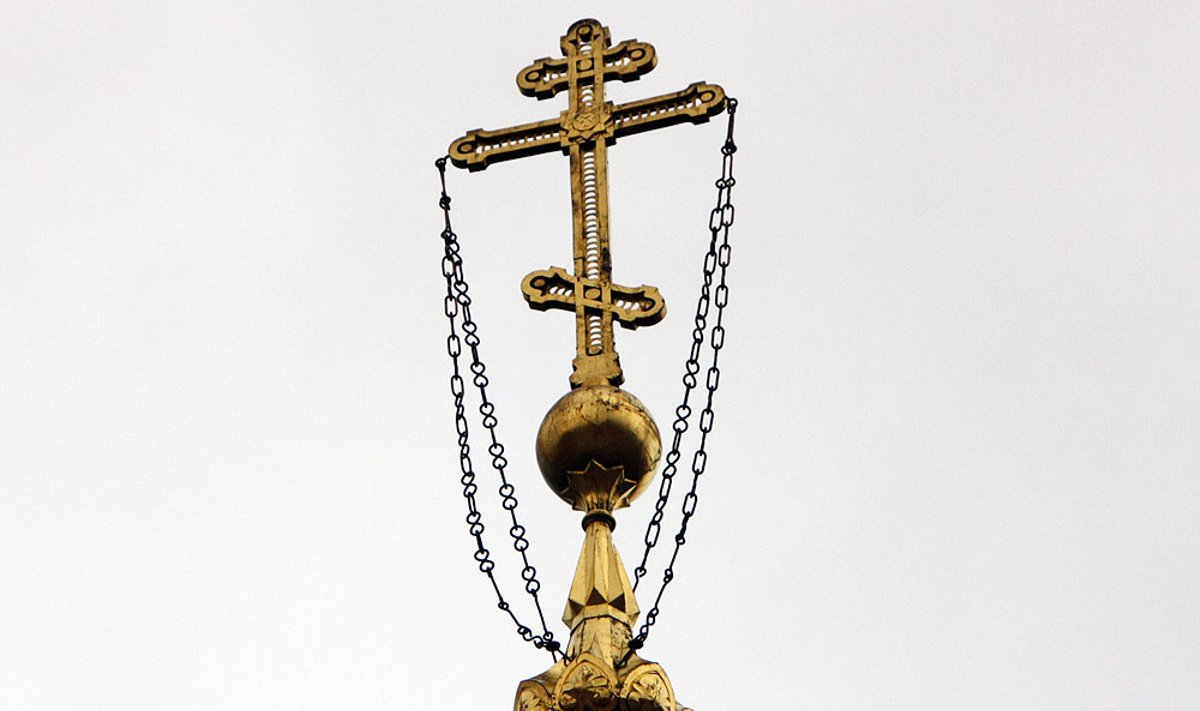The significance of the event is also emphasized by the fact that the previous EP bishops' meeting took place three years ago – at the start of the final stage of preparations for the Pan-Orthodox Council in Crete. It is expected that the forthcoming Synaxis will largely determine the position of Constantinople in the Orthodox world since it will deal with such important issues as the crisis in the Greek American Archdiocese and especially the church situation in Macedonia and Ukraine.
This April, President Poroshenko, Ukrainian parliament and some bishops sent appeals to the Ecumenical Patriarchate asking to issue a Tomos of autocephaly (independence) of the Orthodox Church in Ukraine. The head of the State assured that the request would be granted by the 1030th anniversary of Christianization of the Kyivan Rus'-Ukraine. However, this did not happen.
Either did not the current status of the Macedonian issue change.
In fact, having announced the anticipated date of the autocephaly, the Ukrainian leader placed the Patriarch of Constantinople Bartholomew in an awkward position. "Poroshenko returned from Istanbul after meetings with the patriarch with a bit of exaggerated enthusiasm," the head of the Ukrainian Orthodox Church of the USA which is under the Ecumenical Patriarchate, Metropolitan Anthony, commented on the situation to the Voice of America.
In the last few years, the Ukrainian authorities have repeatedly appealed to Constantinople with requests for autocephaly. At the same time, whether trying to win the favor of His All Holiness, or because of their superficial knowledge of the church sphere, Kyiv officials exaggerated his capabilities as the "first" in the Orthodox Christian world.
Patriarch of Constantinople is indeed highly respected by the other Local Orthodox Churches. However, he has no right to make unilateral decisions on such important issues as autocephaly: a consensus of the Councils of all the Local Churches on this matter is needed. As per information from the Phanar, some Churches have already voiced their displeasure over the non-oservance of the procedure of granting ecclesiastical independence which was elaborated and agreed by all the Orthodox Churches back in 1993.
Another option for the Phanar is believed to be the restoration of its jurisdiction over the historical Metropolis of Kyiv and establishment of the Exarchate in Ukraine. However, this scenario is also problematic because the boundaries of the Kyivan Metropolis as of 1686 differ significantly from the boundaries of modern Ukraine. Thus, in this case, it is equally inappropriate to speak of the creation of the One Local Orthodox Church in Ukraine which was promised by Petro Poroshenko.
Besides, the Orthodox community in Ukraine is divided into three competing entities – the Ukrainian Orthodox Church (under the Moscow Patriarchate), the Kyiv Patriarchate and the Ukrainian Autocephalous Orthodox Church. The first of them is quite satisfied with a large measure of autonomy and does not seek greater independence. And the other two are not recognized by the Orthodox world. Up to now, none of the other Local Orthodox Churches has supported the granting of the Tomos in the situation when Ukrainian Orthodoxy remains divided.
As Metropolitan Anthony notes, this complicates the task for Constantinople even further. "In most cases, when the country is given autocephaly, there is only one church, so the question arises: whom should the tomos be given to. This issue must be considered very seriously," the hierarch explained.
The process is not that complicated, when in one country there exist several canonical Orthodox Christian structures of diasporas every of which amounts to less than 1% of the population. However, more than 65% residents of Ukraine consider themselves Orthodox Christians. The division between a would-be Local Ukrainian Orthodox Church and the Moscow Patriarchate on the basis of ethnicity also does not work: Russians are by no means a minority in Ukraine (they comprise about 17.3% of the country's population), and some of them also stand for church independence.
Probably it is for these reasons that even in the middle of July the discussion on the issue of the Ukrainian autocephaly was still in full swing at Phanar. "We are not certain yet that the Tomos is going to be given, and this issue is still being discussed in Constantinople. Archbishop Daniel and I were there a few weeks ago, and we were told this clearly," His Eminence Anthony told the Voice of America.
The head of the UOC of USA does not exclude that a meeting of all Orthodox bishops from around the world may be required to resolve the issue. This is how in 1998, at the Pan-Orthodox Council in Sofia, convened by the patriarch Bartholomew, the schism in the Bulgarian church was healed. The readiness of the Phanar to apply this approach to Ukraine was also claimed by Archbishop Job of Telmessos in 2016: "The Ecumenical Patriarchate is ready to help to heal the church schism following the recent example of the Bulgarian Church and the Church of the Czech Lands and Slovakia."
The upcoming Synaxis will, to a large extent, show how Constantinople will manage to reconcile the expectations of Kyiv, positions of other autocephalous churches and the requirements of the Holy Canons.
Whatever happens, let's wish Ukrainians to be patient. And for Autocephalous Local Churches it might be advisable to be there to assist the Phanar in making a well-considered and truly conciliar decision together. That is, if Constantinople wants it to be so, of course.
NOTE: The opinions expressed in this article are solely the author's and do not represent those of the Lithuania Tribune or its staff.
